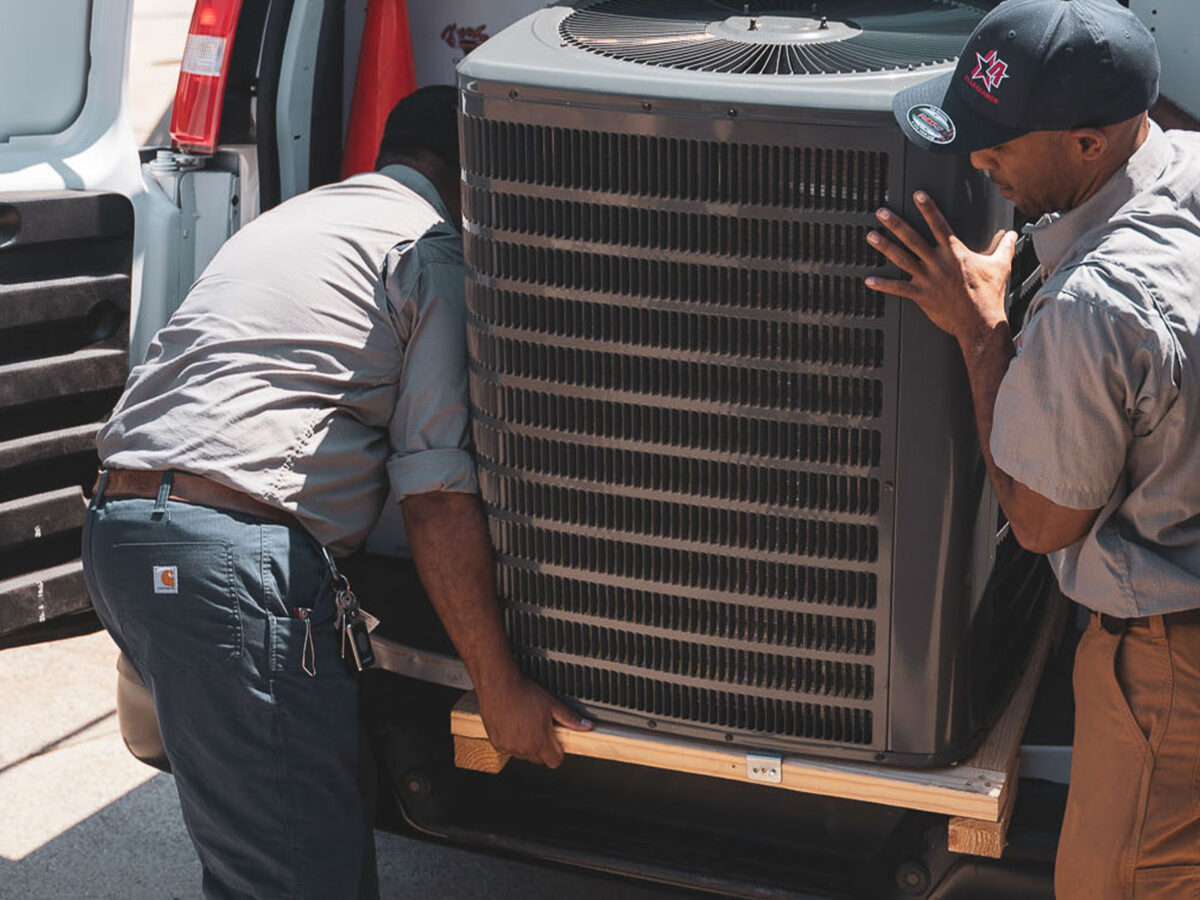Preventive HVAC Maintenance Canoga Park - Find An HVAC Contractor
Preventive HVAC Maintenance Canoga Park - Find An HVAC Contractor
Blog Article
Local HVAC Contractor Canoga Park Find An HVAC Contractor
Indoor air quality significantly impacts your well being and total well-being. Understanding tips on how to check indoor air quality at house can empower you to create a more healthy residing setting. Most individuals spend a considerable period of time indoors, usually more than they realize. This makes it important to make sure that the air you breathe is clean and free from pollutants.
Various factors can have an result on indoor air quality. Common pollution embody dust, pet dander, mold spores, volatile natural compounds (VOCs), and household chemical compounds. The accumulation of those pollutants can result in short-term discomfort and long-term health issues. Symptoms could embrace complications, irritated eyes, fatigue, and respiratory issues. Identifying these pollution is the primary step in the path of enhancing the air you breathe.
The first step in checking indoor air quality entails being aware of any odors or noticeable adjustments in the air. Unpleasant or robust odors can indicate an underlying downside. A lingering musty scent might level to mould growth, whereas sharp chemical odors can trace at the presence of VOCs from cleansing merchandise or paints.
Sustainable HVAC Solutions Canoga Park Find a Local Plumber or Licensed HVAC Contractor
Using a visual method is another efficient method to assess indoor air quality. Inspect areas vulnerable to moisture, similar to loos and kitchens, for signs of mold growth. Look for peeling wallpaper, dark spots on walls, or water stains, as these can indicate humidity or leaks. Additionally, verify areas where mud can accumulate, like vents, baseboards, and shelves.
Checking humidity levels is essential for maintaining good indoor air quality. Excess humidity can promote the growth of mould and dust mites, while low humidity can result in dry pores and skin and respiratory discomfort. A hygrometer can help you monitor indoor humidity. The ideal indoor humidity degree should vary between 30% and 50%.

Smart HVAC Systems Canoga Park Local heating & air conditioning/HVAC
Another technique to examine indoor air quality is to gauge the efficiency of your air flow system. Proper air flow helps dilute indoor pollutants. If your home lacks proper airflow, consider installing an air exchange system or utilizing exhaust followers in essential areas like kitchens and bathrooms. This motion not only helps take away stale air but also brings in contemporary air from exterior.
The kind of furniture and materials used in your house can contribute to indoor air quality points. Some furnishings, notably older gadgets, may emit VOCs that affect air quality. When buying new furniture, go for low-VOC or no-VOC options to scale back potential sources of indoor air air pollution.
Plants can play an important role in enhancing indoor air quality. Certain houseplants are known to absorb dangerous pollutants. Spider vegetation, snake crops, and peace lilies are a couple of examples that thrive indoors and promote higher air quality. However, make positive that the crops are appropriate on your residing surroundings to avoid any unintended consequences.
Commercial HVAC Canoga Park AC Installation & Heating - HVAC Contractor
Regular maintenance of heating and cooling systems is vital for air quality. Filters in HVAC techniques accumulate dust and other particles over time. Cleaning or changing these filters regularly can improve airflow and cut back contaminants circulating via your house. Also, contemplate scheduling professional inspections to ensure methods are functioning optimally.
Carbon monoxide detectors and radon testing are other important components of indoor air quality checks. Carbon monoxide is a colorless, odorless gas that can be deadly if present in excessive concentrations. Installing detectors in key areas and following safety tips helps ensure you stay protected.
Radon, another invisible gasoline, can seep into houses and poses severe health dangers. A simple radon test can decide if levels are elevated. Taking corrective actions, similar to improved ventilation or sealing cracks, can mitigate this threat and improve general air quality.
Once you identify sources of indoor air pollution, proactive measures can considerably improve indoor air quality. Regularly dusting surfaces, vacuuming carpets, and cleansing upholstery contribute to reducing allergens. Implementing a no-shoes coverage inside your home also can reduce dirt and contaminants tracked indoors.
HVAC Quotes Canoga Park HVAC Contractor
Air purifiers can be efficient tools for enhancing air quality. They work by filtering out dangerous particles and enhancing ventilation. When deciding on an air purifier, contemplate the dimensions of the room and the kind of filter it uses. HEPA filters are notably effective in capturing nice particles and allergens.
An awareness of your dwelling environment is important for detecting hidden air pollution sources. Common family products, corresponding to cleaners, pesticides, and air fresheners, can introduce harmful chemical substances into your home. Opting for pure options can reduce your exposure to these substances and promote a more healthy atmosphere.
By implementing systematic checks and changing into proactive about air quality, you can significantly improve your indoor environment. Simple steps similar to bettering air flow, using air purifiers, and sustaining humidity levels create a holistic method to indoor air quality.
Seasonal HVAC Services Canoga Park HVAC Contractor - Climate Control

Taking these measures will enable for a safer, extra enjoyable residing surroundings. Your health, consolation, and overall quality of life rely upon the air you breathe. Understanding tips on how to verify indoor air quality at house equips you with the knowledge to scale back risks and create a more healthy space for you and your family. Knowledge view it is power when it comes to maintaining the standard of the air in your home.
Indoor Climate Control Canoga Park Family-Owned & Operated HVAC Contractor
- Utilize an indoor air quality monitor to assess ranges of pollution, humidity, and temperature in real-time.
- Test for volatile organic compounds (VOCs) by utilizing passive sampling gadgets, which can help determine sources of indoor air pollution.
- Measure particulate matter with a laser particle counter, offering perception into dust, pollen, and other airborne particles.
- Conduct a carbon monoxide test using a dedicated sensor to ensure levels remain under the secure threshold.
- Observe the presence of mildew by checking for dampness or musty smells in hidden areas like basements or bogs.
- Regularly examine humidity ranges with a hygrometer, aiming for a balanced vary of 30-50% to stop mildew growth and improve consolation.
- Implement house air quality checks that focus on radon detection, significantly in basements or ground-level rooms.
- Monitor air quality adjustments after using cleaners or airborne products, noting potential reactions or discomfort to pinpoint sources of irritation.
- Plan for regular ventilation by opening windows or using exhaust fans to improve airflow and scale back indoor pollution.
- Become conscious of and limit using synthetic materials in furnishings and decor that can off-gas harmful chemical compounds.undefinedWhat is indoor air quality and why is it important?
- Commercial HVAC Canoga Park
Indoor air quality refers to the condition of the air inside and around buildings. It is crucial as a end result of poor indoor air quality can result in numerous look at more info well being points, including respiratory issues, allergic reactions, and different sicknesses. Maintaining good air quality promotes overall well-being and luxury.
How can I tell if my indoor air quality is poor?
Heating Installation Canoga Park Find An HVAC Contractor
Signs of poor indoor air quality include persistent odors, seen mould growth, extreme mud, and well being symptoms corresponding to complications, fatigue, or respiratory issues. If you discover these indicators, it’s wise to evaluate your indoor air quality additional.
What tools can I use to verify my indoor air quality?
HVAC Tune-Up Canoga Park #1 HVAC Contractor With 5 Star Reviews
You can use a quantity of instruments to evaluate indoor air quality. Air quality displays can measure ranges of pollution like particulate matter, risky organic compounds (VOCs), carbon dioxide, and humidity. Simple DIY checks for mold or allergens are additionally obtainable.
How typically should I verify the indoor air quality in my home?
HVAC System Design Canoga Park Heating Air Conditioning Contractor
It’s really helpful to verify indoor air quality at least annually. However, you must monitor extra regularly should you notice any signs of air quality issues or after renovations, which might enhance airborne pollution.
What are widespread indoor air pollutants I must be conscious of?
HVAC Installation Canoga Park HVAC Air Conditioning Contractors
Common indoor air pollutants include particulate matter, VOCs from paints and cleaning products, mildew, radon, carbon monoxide, and mud mites. Awareness of those pollution might help you are taking steps to mitigate their presence.
How can I enhance the indoor air quality in my home?
HVAC Emergency Repairs Canoga Park HVAC Contractor & HVAC Tune-ups
To enhance indoor air quality, guarantee proper ventilation, use air purifiers, frequently change air filters, decrease the use of synthetic chemical compounds, and keep a clear surroundings to minimize back dust and allergens.
Are plants effective in improving indoor air quality?
- HVAC System Design Canoga Park
HVAC Maintenance Canoga Park AC & Heating Services - HVAC Contractor
Yes, sure houseplants may help enhance indoor air quality by absorbing toxins and rising humidity. Popular air-purifying plants include spider plants, peace lilies, and snake vegetation. However, be conscious of allergy symptoms or sensitivities some plants may cause.